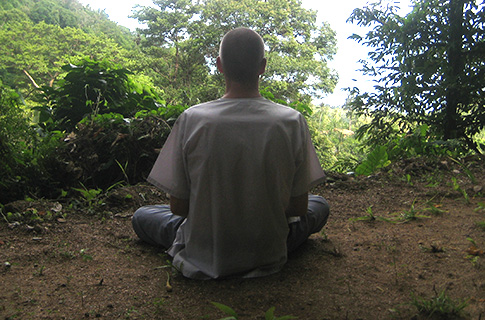Usually it happens when we are alone, silent, undisturbed by people. This connection with nature can uplift our minds immensely; it induces a very peaceful and calm kind of happiness, a feeling of lightness, of floating, something magical.
Peacefulness and calmness of the mind is our refuge after being stressed out by all the other means of chasing “worldly” happiness. So why live the hard way and turn to this inner peace and balance only after a health scare, a divorce or other catastrophes in life? Why wait until our problems in life mount until they become nearly unbearable?
A much wiser approach is to investigate the causes of our discontentment and little by little free ourselves from this relentless and tiring chasing after pleasure. Even though reading books or listening to talks will help with this inquiry, it can effectively be done only by looking inside, by examining our own bodies and minds – by meditation. At the end of the road Nibbana or Nirvana, a balanced permanent state of mind is waiting but at least for me (and I suspect for the vast majority of others) this is beyond reach. But we can free the minds more and more frequently from discontentment and unhappiness. The path to genuine happiness is provided by meditation. [...]
Return to the Meditation top level page

